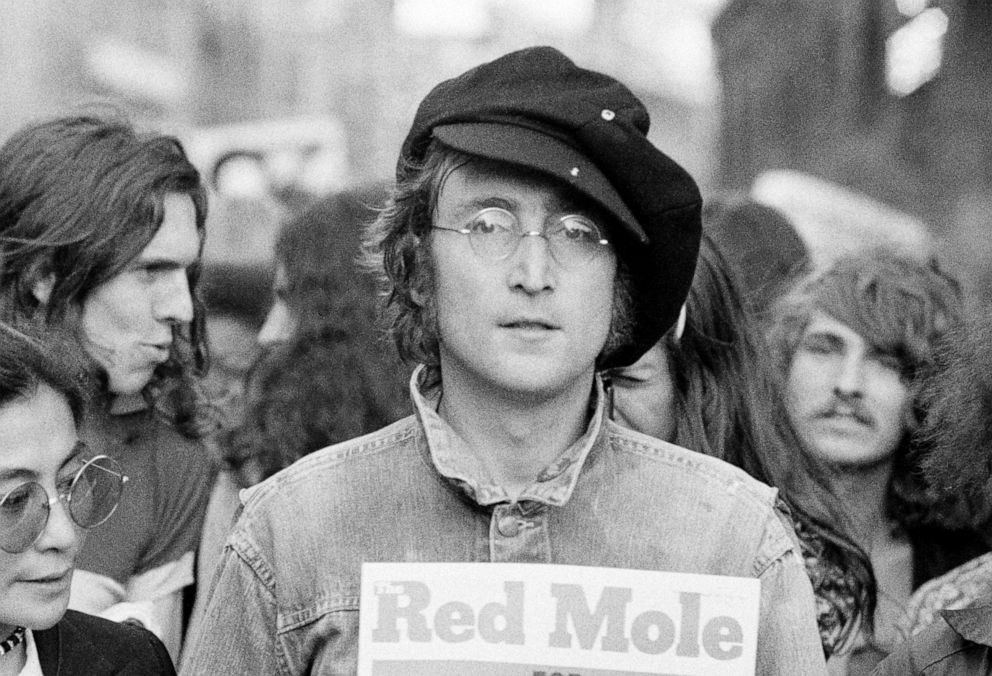John Lennon, a name synonymous with peace, music, and the legendary Beatles, met a tragic end that shocked the world. His death, a senseless act of violence, remains a stark reminder of the fragility of life and the dark side of fame. This article delves into the details of how John Lennon died, exploring the events of that fateful day and the motivations behind the shocking crime.
On the evening of December 8, 1980, John Lennon and his wife, Yoko Ono, returned to their residence at the Dakota apartment building in New York City. Earlier that day, Lennon had been cheerful and engaging, even signing an autograph for a fan outside the building. This fan was Mark David Chapman. Unbeknownst to Lennon, this encounter was a chilling prelude to tragedy.
[ ]
Later that evening, as Lennon and Ono approached the entrance of the Dakota, Chapman was waiting in the shadows. Without warning, he fired five shots at Lennon with a .38 caliber revolver. Four bullets struck Lennon in the back and shoulder. Despite the grievous wounds, Lennon managed to stagger a few steps into the building lobby before collapsing.
Yoko Ono screamed for help as building security guard Jay Hastings rushed to Lennon’s side. Hastings immediately contacted the police. Another Dakota employee, doorman Jose Perdomo, kicked the gun out of Chapman’s hand as he stood calmly at the scene, holding a copy of J.D. Salinger’s novel “The Catcher in the Rye”. When police arrived minutes later, Chapman offered no resistance and was arrested at the scene.
John Lennon was rushed to Roosevelt Hospital in a police car. Despite efforts by doctors, he was pronounced dead on arrival at 11:15 PM. The news of Lennon’s death spread like wildfire, plunging the world into mourning. Fans gathered outside the Dakota and around the world, holding vigils and playing his music in remembrance of the fallen icon.
The man responsible for this devastating act was Mark David Chapman, a 25-year-old former security guard from Hawaii. In the aftermath of the shooting, Chapman’s motives became a subject of intense scrutiny. Initially, there was speculation that Chapman was a disgruntled fan or motivated by political reasons, given Lennon’s past activism. However, as details emerged, a far more disturbing picture unfolded.
Chapman confessed that he had been consumed by a desire for fame and “glory.” He was deeply disturbed by Lennon’s seemingly contradictory lifestyle – a wealthy rock star who preached peace and love. Chapman felt “angry and jealous” of Lennon’s wealth and status, believing that by killing someone famous, he could achieve notoriety.
[ ]
In subsequent parole hearings, transcripts of which have been released, Chapman reiterated his desire for “glory” as the primary motivation. He expressed remorse for his actions and the pain he caused Yoko Ono and Lennon’s sons, but his underlying motive remained chillingly self-centered. He admitted that he had considered other famous targets but ultimately chose Lennon due to his fame and accessibility. Chapman’s actions were not driven by any ideology or personal grievance against Lennon, but by a twisted desire for self-glorification through a heinous act.
Mark David Chapman pleaded guilty to second-degree murder and was sentenced to 20 years to life in prison. He has been denied parole eleven times, with his quest for “glory” continuing to disturb parole boards decades after the crime.
John Lennon’s death was a profound loss to the world. Beyond the immediate shock and grief, it sparked conversations about gun violence, celebrity culture, and mental health. Lennon’s music and message of peace continue to resonate, serving as a powerful counterpoint to the violence that took his life. His legacy endures, reminding us of the power of music and the importance of striving for a more peaceful world, values tragically undermined by the manner of his death.

